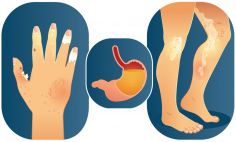Maureen Mayes, M.D., is the founder and director of the Scleroderma Clinical and Research Program at the University of Texas Health Science Center, Houston. Her research on scleroderma has been supported by NIH. We asked her for her top advice for those diagnosed with the disease.
1. Don't get discouraged.
"Treatments have improved, so the outlook for patients is more optimistic than it was 16 or 17 years ago," Dr. Mayes says. Unfortunately, some health care providers who aren't aware of these newer developments may give patients a bleaker impression. "I want patients to know they have more choices now."
2. Get a second opinion.
Scleroderma is a rare disease and primary care providers or internists who haven't treated many cases of scleroderma may not be as familiar with the latest tests and treatments, or even with the range of often subtle symptoms. There are more than two dozen scleroderma centers across the U.S., with specialists trained in treating the condition. Patients are often hesitant to tell their health care provider they want to get a second opinion, "but getting another viewpoint can be very helpful. At least go for an evaluation," she says.
3. Get regular heart and lung testing.
Systemic scleroderma can cause scar tissue buildup in the lungs and heart, so "it's very important that patients get annual or biannual testing so any problems can be identified early and treated appropriately," Dr. Mayes says.
4. Get the right diagnostic test.
Trouble getting an accurate diagnosis is a common problem that Dr. Mayes hears from patients. The key is an ANA/IFA blood test, which stands for antinuclear antibody using indirect immunofluorescence. The problem is that a faster, less expensive, simplified ANA test has been introduced, but it can produce false negative results for scleroderma patients. Dr. Mayes urges patients to get the ANA/IFA test.
5. Seek tips from other patients.
Seek tips from other patients. Local or online support groups and scleroderma organizations are a great source of tips for improving a patient's quality of life, Dr. Mayes says. "Even little things, like always having a jacket and gloves with you to protect Raynaud's-affected fingers from drastic temperature changes in air-conditioned stores and offices, are important."







